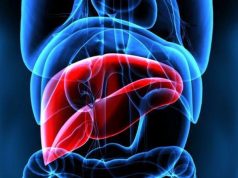Findings seen for those with normal alanine transaminase and especially for patients with HBV DNA ≥2,000 IU/mL
By Lori Solomon HealthDay Reporter
WEDNESDAY, Jan. 3, 2024 (HealthDay News) — Continuous nucleos(t)ide analog treatment is effective in lowering the risk for liver cirrhosis in hepatitis B e antigen (HBeAg)-negative chronic hepatitis B patients, according to a study published in the December issue of the Journal of Clinical and Translational Hepatology.
Jing Zhou, from Sichuan University in Chengdu, China, and colleagues analyzed 194 HBeAg-negative patients with normal alanine transaminase and positive hepatitis B virus (HBV) DNA (â¥20 IU/mL) who were untreated, continued treatment, and discontinued treatment (67, 87, and 40 patients, respectively).
The researchers found that during a median follow-up of 54 months, the treatment-continued group achieved 100 percent virological response and significantly reduced aspartate aminotransferase-to-platelet ratio index and fibrosis-4 index scores. Compared with the untreated group, the risk for liver nodules and cirrhosis in the treatment-continued group was reduced. Results were similar compared with the treatment-discontinued group. Among patients with HBV DNA â¥2,000 IU/mL, adherence to treatment lowered the risks for liver cirrhosis compared with both the untreated and the treatment-discontinued groups. Hepatocellular carcinoma was reported by one patient in each of the untreated and treatment-discontinued groups, but not in the treatment-continued group.
“The indications of antiviral therapy should be expanded in that population, especially for those with HBV DNA levels â¥2,000 IU/mL,” the authors write. “After treatment is initiated, patient medication compliance needs to be monitored continuously.”
Copyright © 2024 HealthDay. All rights reserved.








